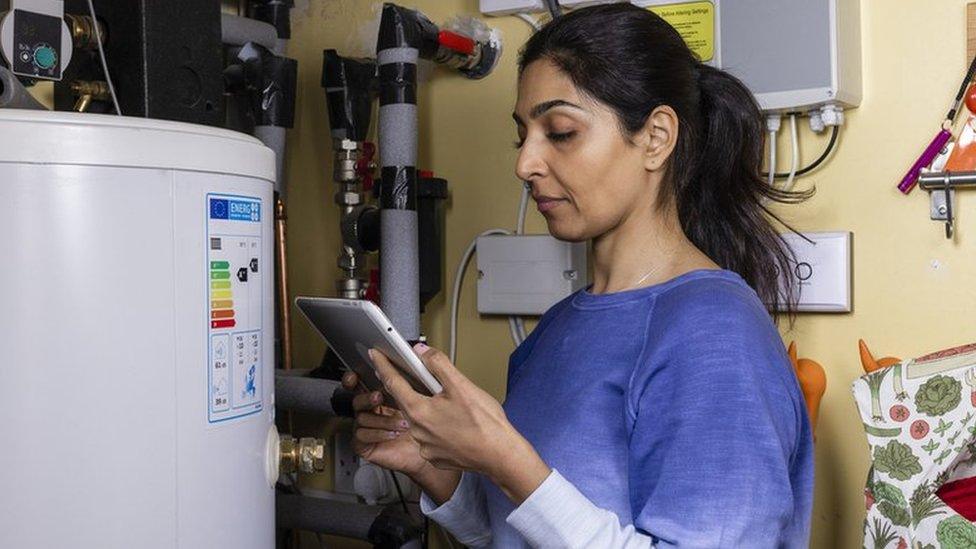Predicting peak inflation has been a mug's game
- Published

Predicting the peak of inflation levels has been a mug's game in the last nine months.
The Bank of England originally predicted last year it would peak at 5%, then 10, then 13. HSBC recently revised its forecasts to 14% and on Monday global investment bank Citi set a new high watermark of 18%.
Almost all of this inflation of inflation estimates has been caused by rocketing gas prices which find their way into almost everything we buy.
This can be through gas-dependent electricity production, gas-linked fertiliser prices which increase the price of food, to the prices in pubs and care homes, which need to keep their products or residents cool or warm depending on the season.
What is clear is that the forces that have propelled prices higher look like they are going to get worse before they get better.
Leading analysts Cornwall Insight predict the new price cap - the amount energy providers are allowed to charge the average household come October - is expected to be set at over £3,500 a year on Friday.
They have been pretty accurate over the last year - if anything they have slightly underestimated the price rise. Energy producers have seen their UK operations taxed at 65%, and the retailers are losing hundreds of millions of pounds.
It seems unlikely the Bank of England will sit idly by while their main job - controlling inflation - spins out of their control. Further interest rate rises are nailed on.
That means it is government - and only government - that can intervene to protect households from crushing bill increases this year and next.
The only option that seems to have credibility is not the short-term price freeze suggested by Labour or the interventions promised by either candidates to the next prime minister, but the multi-year answer suggested by the energy industry itself - a massive, once-in-a-generation intervention costing tens of billions underwritten by the government.
This would be paid back over a decade or two to build a bridge to a future with more renewables, more ability to store them and a different world and economic order, the industry says.
Whoever has the scariest inflation story - the stories are all chilling.
Related topics
- Published22 August 2022

